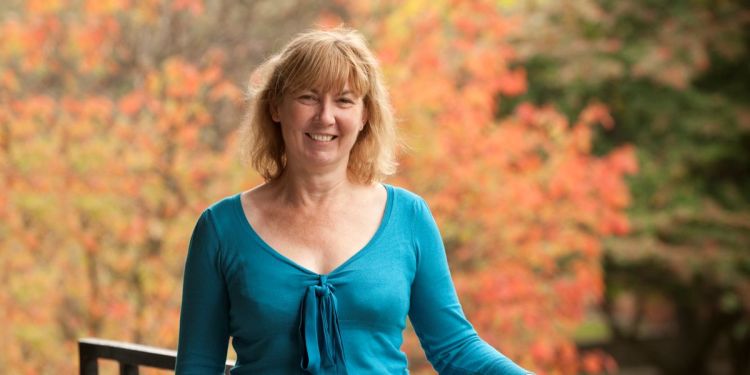Fellowship for physics professor’s space age materials research

A School of Physics professor who discovered materials which could make real life holograms a possibility has been awarded a £1.6m research Fellowship to delve deeper into how they work.
Helen Gleeson, Cavendish Professor of Physics in Leeds’ School of Physics and Astronomy, has received the award from UK Research and Innovation (UKRI), the public body that directs government research funding. It was provided via a Fellowship from UKRI’s Engineering and Physical Sciences Research Council (EPSRC).
The fellowship is entitled “Stretching the boundaries: new soft matter systems.”
Previous research by Professor Gleeson’s team led to a number of exciting discoveries in liquid crystals, which flow like water, but also have some properties usually associated with solids. Liquid crystals are commonly used in television screens, smartphones and digital watches. Their properties mean these screens are compact and light; with low power consumption and a sharp image.
They developed a material which expands on impact rather than getting thinner; one which could eventually lead to real-time holograms, and one which can convert heat energy to electricity.
The Fellowship will allow Professor Gleeson to take these materials from early-stage discovery and build a deep and comprehensive understanding of the physics behind them, so they can be used in future technologies.
She said: “These new liquid crystal materials could have real impact around sustainability, for example by making devices lighter and more robust or by harvesting waste heat energy to improve efficiency. It’s exciting to be able to combine challenging physics with the possibility of also contributing solutions to important global challenges.”
Professor Gleeson, an EPSRC equality, diversity and inclusion champion, will use her Fellowship to address challenges around inclusion and diversity in physics.
She will continue her work on gender-related issues, identifying good practice in UK physics and STEM university schools, and engendering real culture change in institutions across the country.
And working with the Institute of Physics on Project Juno, its flagship gender equality award for university physics departments, she will develop the project to encompass other minority groups.
She said: “I aim to achieve dissemination of best-practice in embedding culture change, taking work at Leeds as a stepping off point.
“I further aim to contribute to understanding the barriers experienced by other minorities in physics, thereby turning the tide, as was done for women 30 years ago.”




